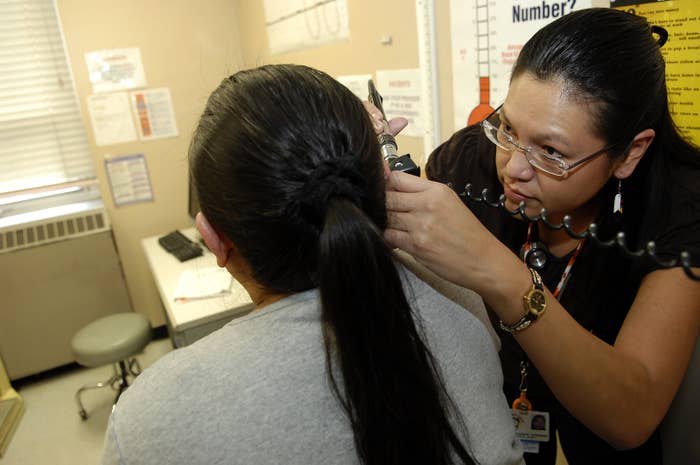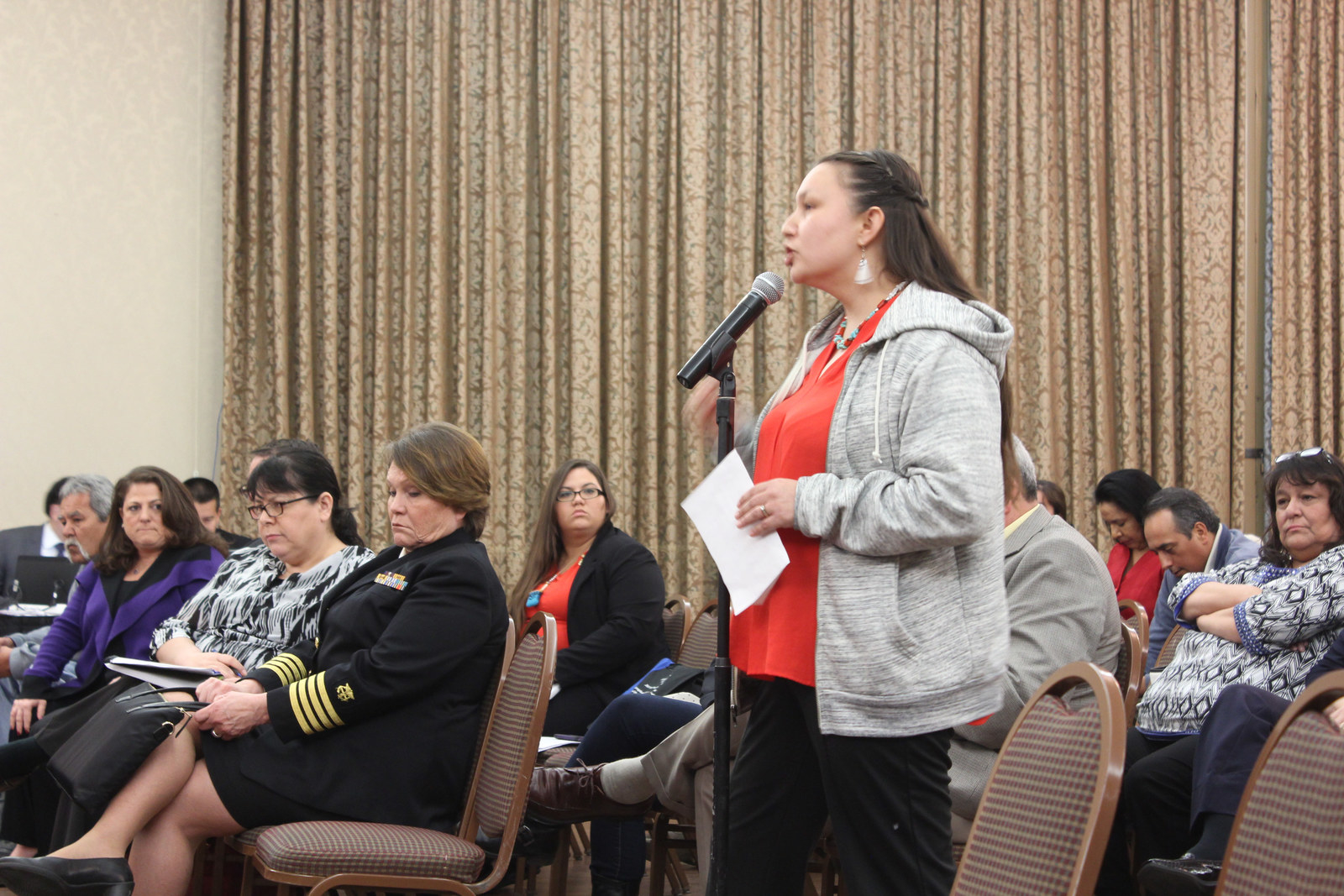
Native American tribes are locked in a battle with the federal government over who pays for health care in Indian country. At stake: millions of dollars in fines that many tribes say they can’t afford.
At the root of the trouble is a clause in the Affordable Care Act that requires large employers — and tribes — to provide private insurance for nearly all employees.
But some tribal leaders say that, although tribes do often employ a lot of people, buying insurance for their employees would be prohibitively expensive. Others say that options offered on the national exchange offer better services at better prices than the tribe would be able to afford.
And most frustrating of all, they say, Native Americans living on reservations already qualify for government-sponsored health services. The Indian Health Service (IHS), an agency within the Department of Health and Human Services, was set up in 1955 to provide comprehensive government-sponsored health care to all indigenous tribes.
“The United States made a commitment to the Indian tribes to provide health care to them. And yet the federal government is reneging on that,” Devin Delrow, director of federal relations at the National Indian Health Board, a Washington D.C. advocacy group, told BuzzFeed News.
Here’s the legal conundrum the tribes are fighting: The “employer mandate” within the Affordable Care Act requires them to pay for private insurance in addition to the public services the IHS provides.
But failure to comply with the ACA mandate could also be costly.
“Either way it’s going to financially cripple our tribe,” said Evelyn Espinoza, health director of the Rosebud Sioux Tribe, which has about 28,000 members in South Dakota. “It’s going to cost millions of dollars to be in compliance with this mandate — or be fined.”
Those costs would be “an added cost to the tribe in an already poverty-stricken area,” Brandon Sazue, chairman of the Crow Creek Sioux Tribe of South Dakota, which has about 3,500 members, told BuzzFeed News.
It’s not yet clear whether the IRS will impose these fines, but if it does for the Rosebud Sioux, Espinoza said, “critical services are going to be cut.”
“It would cause us to terminate maybe 500 employees. It would take away our ability to take care of our elders and our youth ” said O.J. Semans, a member of the Rosebud Sioux health board. “It would completely break us.”
Semans estimates that the annual cost to buy insurance would be $4.5 million a year, and the cost of the fines $2.5 million. The tribe can’t afford either, he said, so he worries the government would then look to seizing the Rosebud Sioux’s land. “The only item we have of any value is our land.”
The Northern Arapaho tribe of Wyoming was among the first to challenge the employer mandate in court.

About a month before the employer mandate came into effect, the tribe sued the Department of Health and Human Services and the Department of Treasury, arguing that Congress never intended for the employer mandate to apply to tribes.
Also, the tribe argued, their employees would be getting superior services at a better rate if they bought insurance in the marketplace as individuals, rather than getting it from the tribe.
Matching the services as an employer would cost the tribe up to $5 million a year, Mark Howell, a spokesperson for the Northern Arapaho told BuzzFeed News. With revenue from a casino and businesses in oil and gas, this tribe is wealthier than many. And yet, about 42% of the 10,000-strong membership is unemployed, and 62% lives below the poverty line. “For an impoverished tribe in the middle of Wyoming, that’s a pretty big hit,” Howell said.
The Arapaho lost, but appealed the case, which is currently in mediation. Even so, it set off a groundswell of activity: Tribal leaders became aware of the mandate and advocacy groups kicked into high gear.
“We believe that tribes of this nation were never intended to be included in the employer mandate,” Stacey Bohlen, executive director of the National Indian Health Board, told BuzzFeed News. According to an NIHB case study, meeting the mandate could cost one Montana tribe $9 million per year.
In conversations with the White House, the Department of Treasury, the IRS, the IHS, and the HHS, the NIHB has been pitching short-term fixes, among them a delay to the end June deadline for employers to report compliance to the mandate that could buy tribes time to secure a legislative fix.
Treasury has been “willing to work with us to mitigate the impact,” Delrow said. But the department has been “resisting” the idea of a delay in implementing the mandate, and has so far rejected the possibility of an exemption. “They said they don’t have the legislative authority to do the full exemption,” Delrow said.
The IRS and the HHS declined to comment to BuzzFeed News.
Now two bills formally propose that tribes should not be subjected to the mandate.

The first, introduced by South Dakota Representative Kristi Noem in July of last year, is now being reviewed by the House Committee on Ways and Means.
The other, presented last summer by Senator Steve Daines of Montana, and co-sponsored by Senators Mike Crapo, John Thune, and Mike Rounds, was referred to the Senate Committee on Finance.
But neither bill has moved very far through the legislative pipeline. So tribes are now attempting petitions to lawmakers.
In October, the Great Plains Tribal Chairmen’s Health Board, an advocacy group that represents 18 tribes, passed a resolution that requested the IRS to consider waiving the requirement. The resolution also requested Congress to consider passing legislation that would correct the apparent oversight.
The Rosebud Sioux Tribe has also requested the IRS waive this requirement, but has not received a response.
Besides the economics of it all, some advocates say the ACA mandate undermines the spirit of historical treaties under which the tribes relinquished their land to the government.
“We are the only minority group of people who have a legal binding treaty with this country to provide health insurance,” Espinoza said. “Our history is not acknowledged.”
